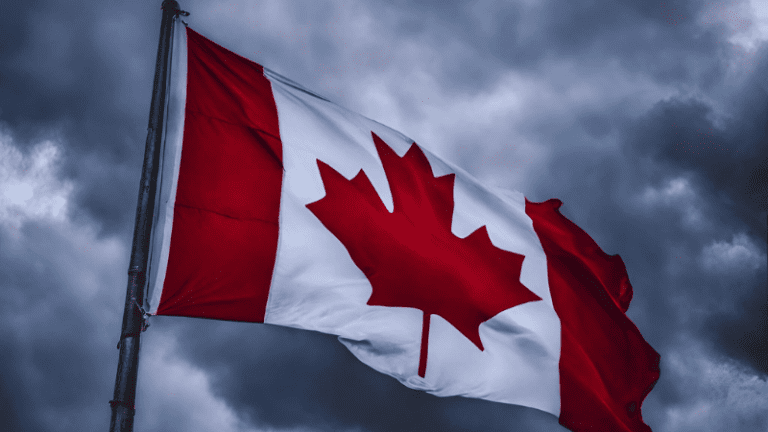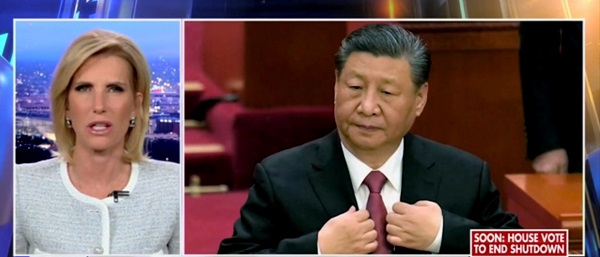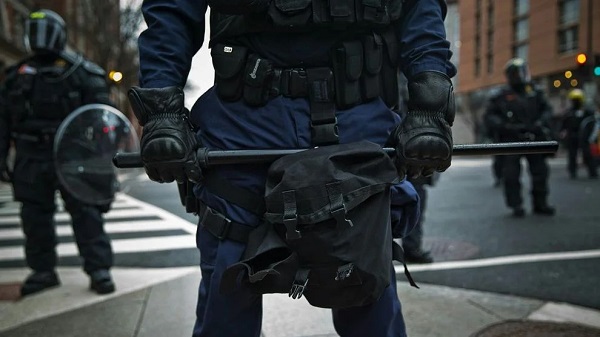espionage
The foreign interference inquiry could backfire on our national security

From the MacDonald Laurier Institute
By Katherine Leung and Ivy Li
Two politicians alleged by security experts to have close connections with the Chinese Consulates have been granted full standing in the inquiry by Commissioner Marie-Josée Hogue.
Canada’s public inquiry into foreign interference finally began on Monday, but unfortunately there has already been significant controversy in the months leading up to its launch. Chief among these concerns is the inquiry’s questionable ability to safeguard sensitive national security information from being used by individuals with ties to the People’s Republic of China (PRC).
Two politicians alleged by security experts to have close connections with the Chinese Consulates have been granted full standing in the inquiry by Commissioner Marie-Josée Hogue. This decision shocked many, especially communities who have been subjected to the Chinese Communist Party’s transnational repression.
Given the inclusion of these two suspect individuals, human rights activists have expressed concern for their safety if they are called to testify before the inquiry. A human rights coalition, which was also granted full standing, appealed the inclusion of the two individuals – they merely asked Hogue to downgrade the politicians’ standing status in order to protect vulnerable witnesses – but the appeal was denied.
A person who has full standing in the inquiry has the right to cross-examine witnesses and to access documentary evidence not admitted as exhibits, meaning they read and see exactly what the judge reads and sees. Knowing anything and everything the Commission has learned gives unimpeded access to sensitive and confidential information related to Canadian national security, information that is not available to parties with lesser standing.
Information gathered by the Commission will almost certainly reveal how Canadian activists and security experts monitor foreign infiltration and influence. It could expose the methodology used, contacts and information sources, and the strategic approach and rationale of each expert or analyst. Together, these bits and pieces of information will provide a detailed strategic map, exposing how Canadian authorities, non-governmental organizations, grassroots groups, and individuals have attempted to defend Canada’s sovereignty and democratic institutions. This is powerful knowledge; it is not the type of information that should be available to the perpetrators of foreign interference.
By granting standing to individuals with alleged ties to the Chinese embassy, we are potentially offering incredible insight to our adversaries, enabling them to design and execute more effective interference operations and targeted counter actions against the Canadians standing up for our national sovereignty.
Among those granted full standing are Han Dong (the Member of Parliament for Don Valley North) and Michael Chan. Dong was reported by Global News to be at the centre of China’s interference network in Canada as a “willing affiliate”. He subsequently left the Liberal caucus as he works to clear his name, and he continues to sit as an independent MP. Michael Chan, now deputy mayor of Markham, was a minister in the Ontario Liberal government from 2007 to 2018. The Globe and Mail reported that he was identified by CSIS as “too close to the Chinese consulate.” Both Dong and Chan deny these allegations.
Hogue cites the two men’s reputational interest in the Public Inquiry as a direct and substantial interest in the Commission’s work. While that is true, the question remains whether it is in Canada’s interests and appropriate to allow individuals alleged to have close ties with the PRC full access to the Commission’s evidence and records.
The Commission is not mandated to determine if individual suspects are guilty or not. The two politicians could tell their side of the story without full access to non-exhibits and without the power of cross-examination.
Canadians have demanded a public inquiry to protect Canadian sovereignty and democratic integrity. Sensitive information pertaining to Canada’s national security should be handled with the utmost caution. Han Dong and Michael Chan should not be treated as though allegations against them have been proven beyond a doubt – they have not – but the clear potential of inappropriate links to the PRC should disqualify them from accessing information that would be detrimental to our national security if it were to fall into the wrong hands.
The public inquiry meant to protect Canada’s institutions from foreign interference may end up undermining both the safety of individual Canadians and the efficacy of our broader national security apparatus.
Katherine Leung is the policy advisor for Hong Kong Watch Canada. She previously worked as a parliamentary assistant to a sitting MP.
Ivy Li is a spokesperson for Canadian Friends of Hong Kong, and a contributor to The Mosaic Effect – How the Chinese Communist Party started a hybrid war in America’s backyard.
Business
P.E.I. Moves to Open IRAC Files, Forcing Land Regulator to Publish Reports After The Bureau’s Investigation

Following an exclusive report from The Bureau detailing transparency concerns at Prince Edward Island’s land regulator — and a migration of lawyers from firms that represented the Buddhist land-owning entities the regulator had already probed — the P.E.I. Legislature has passed a new law forcing the Island Regulatory and Appeals Commission (IRAC) to make its land-investigation reports public.
The bill — introduced by Green Party Leader Matt MacFarlane — passed unanimously on Wednesday, CTV News reported. It amends the Lands Protection Act to require IRAC to table final investigation reports and supporting documents in the Legislature within 15 days of completion.
MacFarlane told CTV the reform was necessary because “public trust … is at an all-time low in the system,” adding that “if Islanders can see that work is getting done, that the (LPA) is being properly administered and enforced, that will get some trust rebuilt in this body.”
The Bureau’s report last week underscored that concern, showing how lawyers from Cox & Palmer — the firm representing the Buddhist landholders — steadily moved into senior IRAC positions after the regulator quietly shut down its mandated probe into those same entities. The issue exploded this fall when a Legislative Committee subpoena confirmed that IRAC’s oft-cited 2016–2018 investigation had never produced a final report at all.
There have been reports, including from CBC, that the Buddhist landholders have ties to a Chinese Communist Party entity, which leaders from the group deny.
In the years following IRAC’s cancelled probe into the Buddhist landholders, The Bureau reported, Cox & Palmer’s general counsel and director of land joined IRAC, and the migration of senior former lawyers culminated this spring, with former premier Dennis King appointing his own chief of staff, longtime Cox & Palmer partner Pam Williams, as IRAC chair shortly after the province’s land minister ordered the regulator to reopen a probe into Buddhist landholdings.
The law firm did not respond to questions, while IRAC said it has strong measures in place to guard against any conflicted decision-making.
Reporting on the overall matter, The Bureau wrote that:
“The integrity of the institution has, in effect, become a test of public confidence — or increasingly, of public disbelief. When Minister of Housing, Land and Communities Steven Myers ordered IRAC in February 2025 to release the 2016–2018 report and reopen the investigation, the commission did not comply … Myers later resigned in October 2025. Days afterward, the Legislative Committee on Natural Resources subpoenaed IRAC to produce the report. The commission replied that no formal report had ever been prepared.”
The Bureau’s investigation also showed that the Buddhist entities under review control assets exceeding $480 million, and there is also a planned $185-million campus development in the Town of Three Rivers, citing concerns that such financial power, combined with a revolving door between key law firms, political offices and the regulator, risks undermining confidence in P.E.I.’s land-oversight regime.
Wednesday’s new law converts the expectation for transparency at IRAC, voiced loudly by numerous citizens in this small province of about 170,000, into a statutory obligation.
Housing, Land and Communities Minister Cory Deagle told CTV the government supported the bill: “We do have concerns about some aspects of it, but the main principles of what you’re trying to achieve are a good thing.”
The Bureau is a reader-supported publication.
To receive new posts and support my work, consider becoming a free or paid subscriber.
Daily Caller
Laura Ingraham’s Viral Clash With Trump Prompts Her To Tell Real Reasons China Sends Students To US


From the Daily Caller News Foundation
On Monday, Ingraham pressed Trump on why a plan to admit 600,000 Chinese nationals into U.S. universities qualifies as a “pro-MAGA” move, challenging him directly after he defended the influx as vital to maintaining Washington’s relationship with Beijing. During a Wednesday broadcast, Ingraham said no modern president has fought harder for American workers than Trump and predicted he will “honor that distinction for the next three years.”
“There was also more consternation over the approach to allowing Chinese and other foreign students to take spots at U.S. universities. A lot of MAGA folks didn’t like that at all. And it’s not, by the way, as some Chinese influencers today said on X, I love this, it’s not that the MAGA folks, certainly not myself, dislike the Chinese people. It’s ridiculous,” Ingraham said.
“What they dislike is the Chinese system that represses Chinese people and uses them as human spies and saboteurs. Remember, when the CCP greenlights hundreds of thousands of their people to come study here, they’re not sending them so they can learn about the wonders of Western civilization, Plato and Socrates, Greek history, become champions of individual freedom and take that message back home. They’re sent here to do whatever is necessary to learn how to push the People’s Republic closer to crushing America, to stealing from us, and for spying on us,” Ingraham added.
Ingraham said that people “understandably perplexed by some of the president’s comments, we cannot forget, what American president has ever been tougher on China than Donald Trump? None.”
Ingraham told viewers that Beijing does not send its students to America to study the Western canon or return home as advocates of individual liberty.
WATCH:
Ingraham warned that China’s rise didn’t happen overnight, saying that decades of inattentive presidents allowed Beijing to gain the strength Trump now must confront.
“Given China’s growing strength that’s been amassed over decades of presidents who were out to lunch, President Trump inherited the most challenging situation,” Ingraham said. “I don’t think it’s an exaggeration to say this, that any president has faced in the last 50 years. He and his entire team are dedicated to countering the Chinese aggression that’s building.”
Washington and Beijing struck a deal in June clearing the way for Chinese nationals to enroll in American universities, a shift that followed the administration’s June 5 move blocking Harvard from bringing in additional international students. Officials justified the restriction by pointing to security vulnerabilities and rising campus turmoil, including allegations of antisemitic activity, as reasons to tighten the flow of foreign applicants.
Trump acknowledged at the time that admitting large numbers of students from a country controlled by the Chinese Communist Party carries real intelligence concerns, saying in June that the government “must be vigilant” about who enters U.S. classrooms. National security experts told the Daily Caller News Foundation that the policy could create openings for the CCP to exploit America’s higher-education system and potentially endanger U.S. interests.
-

 Frontier Centre for Public Policy2 days ago
Frontier Centre for Public Policy2 days agoRichmond Mayor Warns Property Owners That The Cowichan Case Puts Their Titles At Risk
-

 Business2 days ago
Business2 days agoMark Carney Seeks to Replace Fiscal Watchdog with Loyal Lapdog
-

 Business2 days ago
Business2 days agoSluggish homebuilding will have far-reaching effects on Canada’s economy
-

 COVID-191 day ago
COVID-191 day agoMajor new studies link COVID shots to kidney disease, respiratory problems
-

 Business2 days ago
Business2 days agoP.E.I. Moves to Open IRAC Files, Forcing Land Regulator to Publish Reports After The Bureau’s Investigation
-

 International1 day ago
International1 day agoBondi and Patel deliver explosive “Clinton Corruption Files” to Congress
-

 International1 day ago
International1 day agoState Department designates European Antifa groups foreign terror organizations
-

 Energy2 days ago
Energy2 days agoCanada’s oilpatch shows strength amid global oil shakeup









